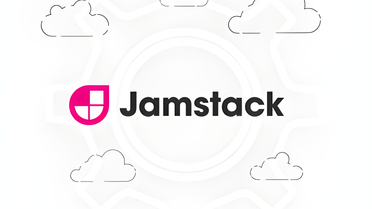In serverless and edge computing environments, ensuring compatibility across browsers, edge runtimes, and servers is more important than ever. Polyfills—small code snippets that mimic newer web features—make it possible to run modern code across a variety of platforms, from browsers to edge functions, without losing functionality.
In this article, we’ll explore how polyfills are essential not just for browser compatibility but also for improving performance and making development smoother in serverless and edge architectures.
Why Polyfills Fill In
As web technologies evolved, developers faced the challenge of leveraging new features while maintaining compatibility with older browser environments. Polyfills emerged as a clever solution to this problem. They are code snippets designed to replicate newer web features in older or less capable environments, ensuring that developers can use the latest standards without sacrificing compatibility. Here’s a basic example of a polyfill:
if (!Array.prototype.includes) { Array.prototype.includes = function (searchElement /*, fromIndex*/) { 'use strict' var O = Object(this) var len = parseInt(O.length) || 0 if (len === 0) { return false } var n = parseInt(arguments[1]) || 0 var k if (n >= 0) { k = n } else { k = len + n if (k < 0) { k = 0 } } var currentElement while (k < len) { currentElement = O[k] if ( searchElement === currentElement || (searchElement !== searchElement && currentElement !== currentElement) ) { // NaN !== NaN return true } k++ } return false }}This polyfill provides an implementation of the Array.prototype.includes method, which isn’t available in some older browsers. With polyfills, developers can write code using the latest standards without worrying about compatibility issues.
Polyfills started as a way to make modern code work in older browsers, but they’ve become just as important in serverless and edge environments, where some APIs may be missing. They help ensure code runs consistently across different platforms without forcing developers to rewrite features for each environment.
This is especially relevant when working with Node.js APIs, which weren’t designed for edge runtimes but remain a core part of many web applications. As developers adapt their code to these constraints, polyfills become a key tool in making Node.js-dependent libraries work beyond the traditional server environment.
Bridging the Gap: Node.js APIs in Edge Environments
Many libraries of Node.js rely on built-in modules (fs, crypto, http), which aren’t available in browser or edge runtimes. This is where polyfills step in, replacing Node-specific APIs with equivalent Web APIs to maintain functionality across environments.
The shift from Node.js-based libraries to worker-friendly implementations often requires careful consideration. For example, if a library depends on the crypto module, but the target environment doesn’t support it, developers can turn to alternatives like the window.crypto Web API to provide similar functionality.
if (typeof window === 'undefined') { global.window = {}}window.crypto = require('crypto')This polyfill replaces Node’s crypto module with the window.crypto Web API for environments where Node.js isn’t available.
For serverless web development polyfills are valuable tools that make the transition from traditional server-based environments to serverless ones seamless. They enable developers to continue using their preferred APIs while also ensuring compatibility across various environments.
Polyfills also offer significant advantages when it comes to maintaining and updating codebases. They provide an abstraction layer that isolates environment-specific code, making it easier to update or replace underlying APIs without affecting the rest of the codebase.
Here’s what the benefits of polyfills look like:
- Seamless transition from server to serverless environments.
- Compatibility across various environments.
- Easier maintenance and updates.
In essence, polyfills ensure that your code runs smoothly on any platform.
Polyfills in Action
Imagine a scenario where a developer needs to use the TextDecoderStream API to connect with a Web API, but the runtime environment doesn’t support it. This is where polyfills come into play. They can simulate the functionality of the API, providing the developer with the necessary tools to continue working without disruptions.
To illustrate this, consider the following code snippet without polyfills:
let decoder = new TextDecoderStream()let readableStream = new ReadableStream({ start(controller) { controller.enqueue(new Uint8Array([65, 66, 67])) controller.close() }})let decodedStream = readableStream.pipeThrough(decoder)This code would fail to execute on an unsupported runtime environment. However, the developer can use an open-source polyfill such as the ones available in unenv. The equivalent code with the polyfill is as follows:
import { TextDecoderStream } from 'unenv'
let decoder = new TextDecoderStream()let readableStream = new ReadableStream({ start(controller) { controller.enqueue(new Uint8Array([65, 66, 67])) controller.close() }})let decodedStream = readableStream.pipeThrough(decoder)Now the code can run smoothly even on an environment that doesn’t natively support the TextDecoderStream API. But while manual polyfilling is a valid approach, a bundler can significantly enhance the development experience.
A bundler automatically detects and includes the necessary polyfills, eliminating the need for manual intervention. This can save developers a lot of time and effort, allowing them to focus more on building a functionality rather than worrying about compatibility issues. But that’s a topic for another section, where we’ll dive into how a tool like the Azion Bundler can greatly improve your workflow when dealing with polyfills.
Azion Bundler and Polyfills
An edge runtime has significant challenges in ensuring compatibility. We developed Azion Bundler, an open-source bundler equipped with polyfills to improve developer experience and compatibility. The bundler is designed to be highly flexible, adaptable, and developer-friendly. As an open-source project, it’s continuously evolving through collaborative development.
Azion Bundler includes the following features:
-
Unenv: an open-source library that provides environment polyfills.
-
Custom Polyfills: these are specifically designed to extend the compatibility of edge runtime and fill the gaps of the missing unenv polyfills.
The bundler’s flexibility allows developers to adapt to the ever-changing environment of web development.
Conclusion
Polyfills ensure compatibility across diverse environments, let developers utilize the latest standards without sacrificing functionality, and optimize performance for an improved user experience.
The use of polyfills in serverless environments contributes to the agility and scalability of serverless web development.





